MITS5505 Knowledge Management: Case Study Analysis of KM Failure
VerifiedAdded on 2022/10/11
|6
|1046
|382
Case Study
AI Summary
This case study examines the failure of knowledge management (KM) implementation within a global company, focusing on five distinct stages: advocate and learn, develop a strategy, design and launch KM initiatives, expand and support efforts, and institutionalize knowledge management. The analysis reveals that the company's KM project, Alpha, failed due to several factors, including the lack of a dedicated KM team, inadequate resource allocation, insufficient funding for pilot projects, poor team coordination, and the inability to learn from competitors. The study contrasts two approaches to knowledge developer selection, favoring the pairing of a talented generalist with strong interpersonal skills and analytical abilities with a competent knowledge developer. The case highlights the importance of a holistic approach to KM implementation, emphasizing the need for strong leadership, adequate resources, effective team collaboration, and continuous learning to achieve successful knowledge management within an organization. The document concludes with a list of references.
1 out of 6

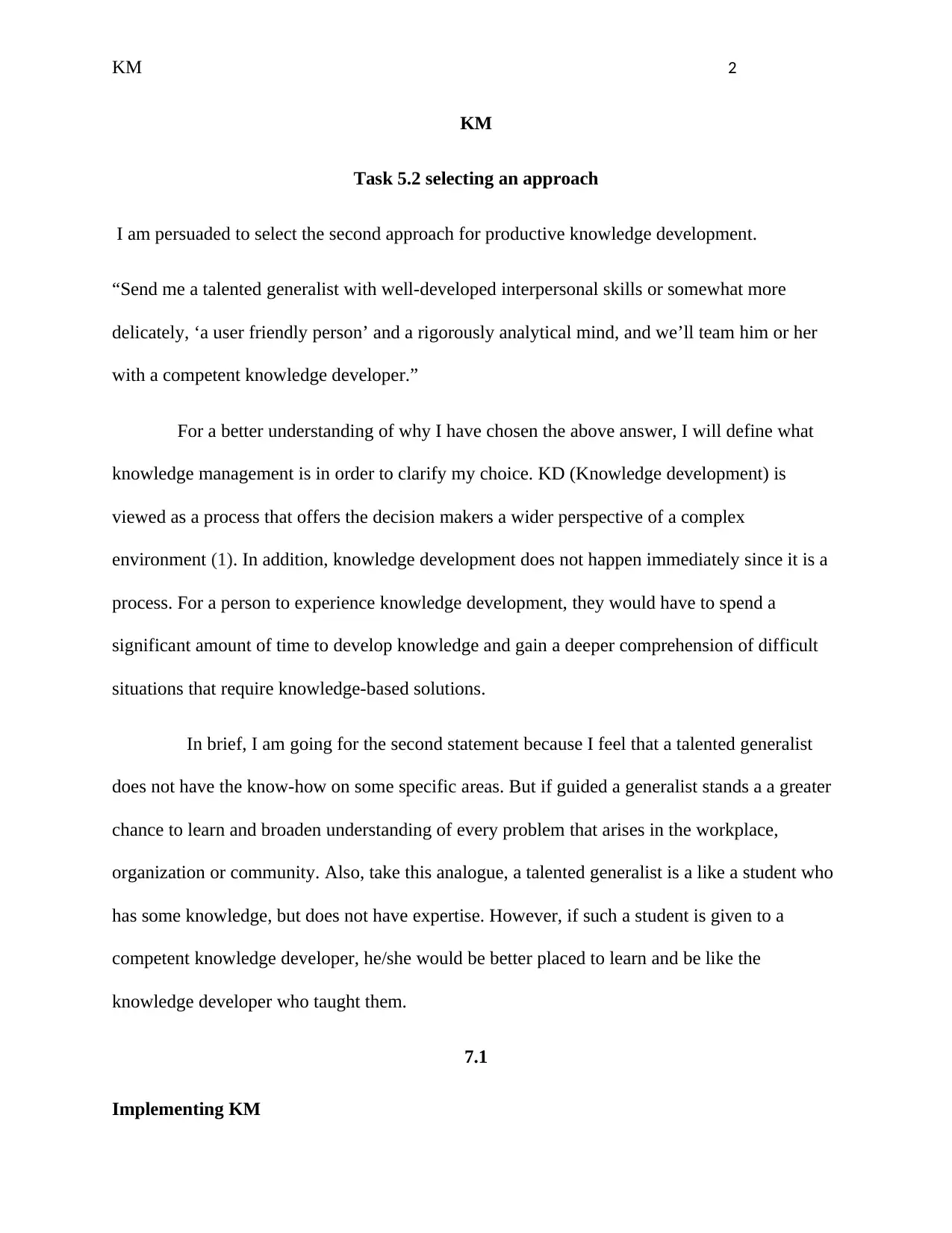
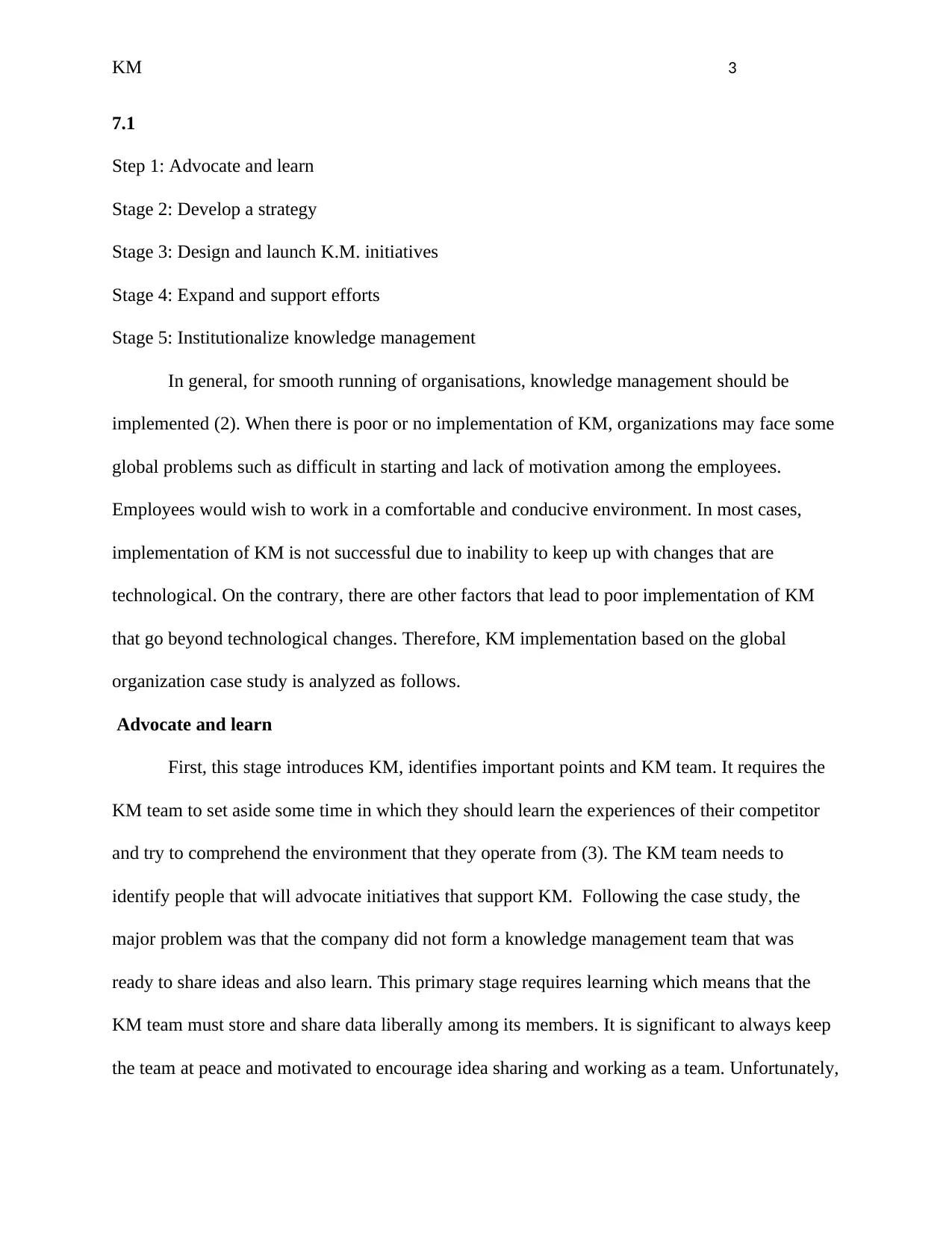

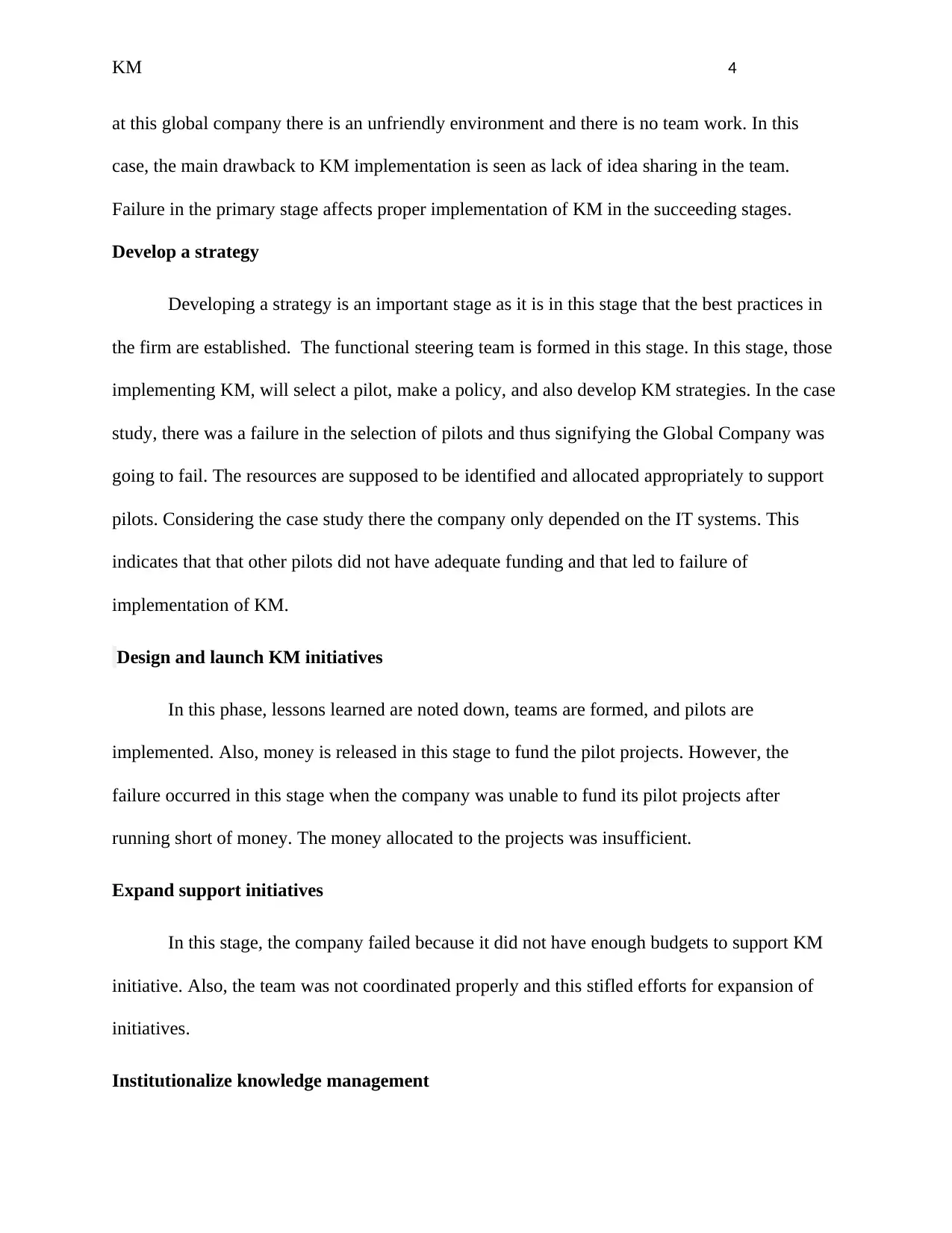
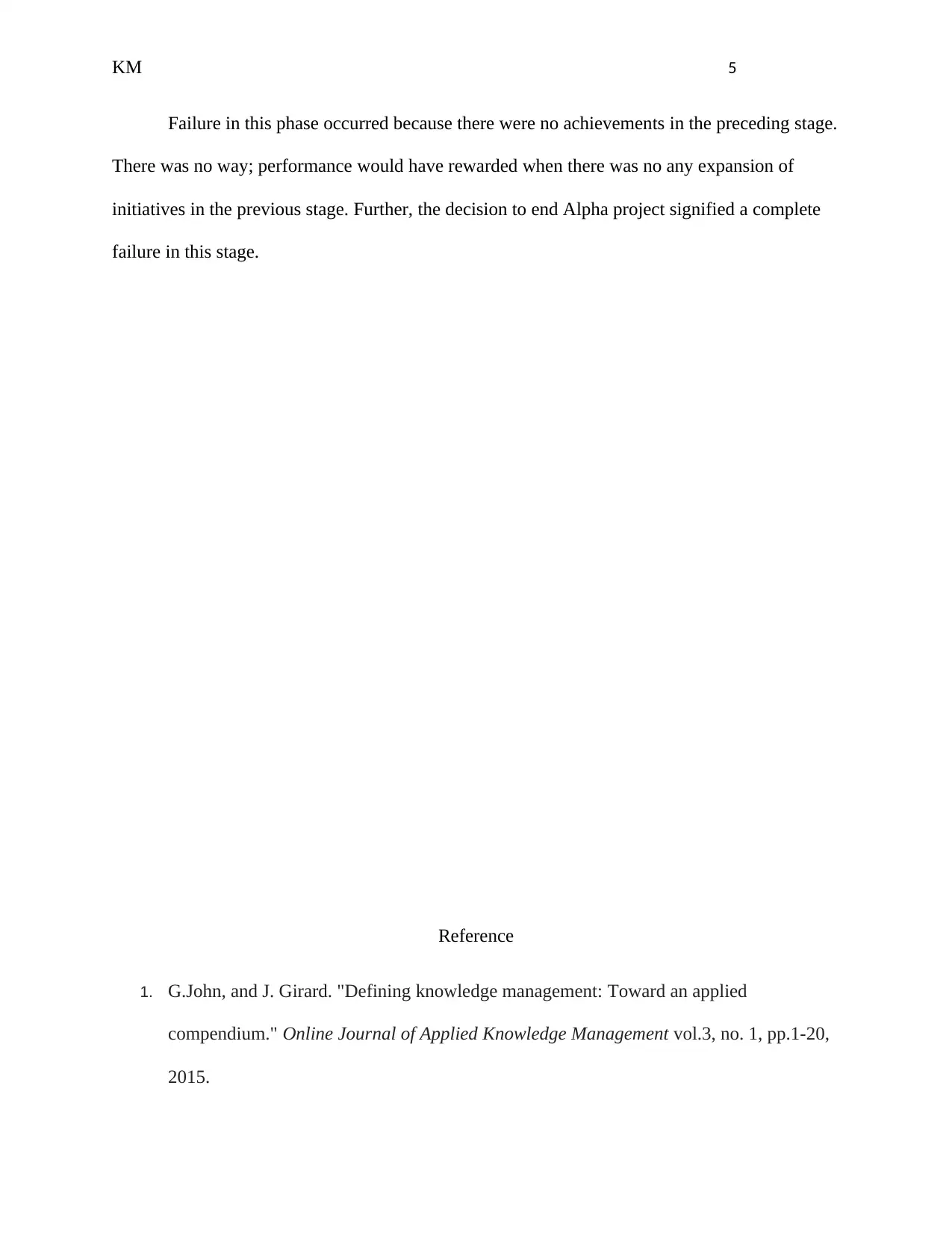
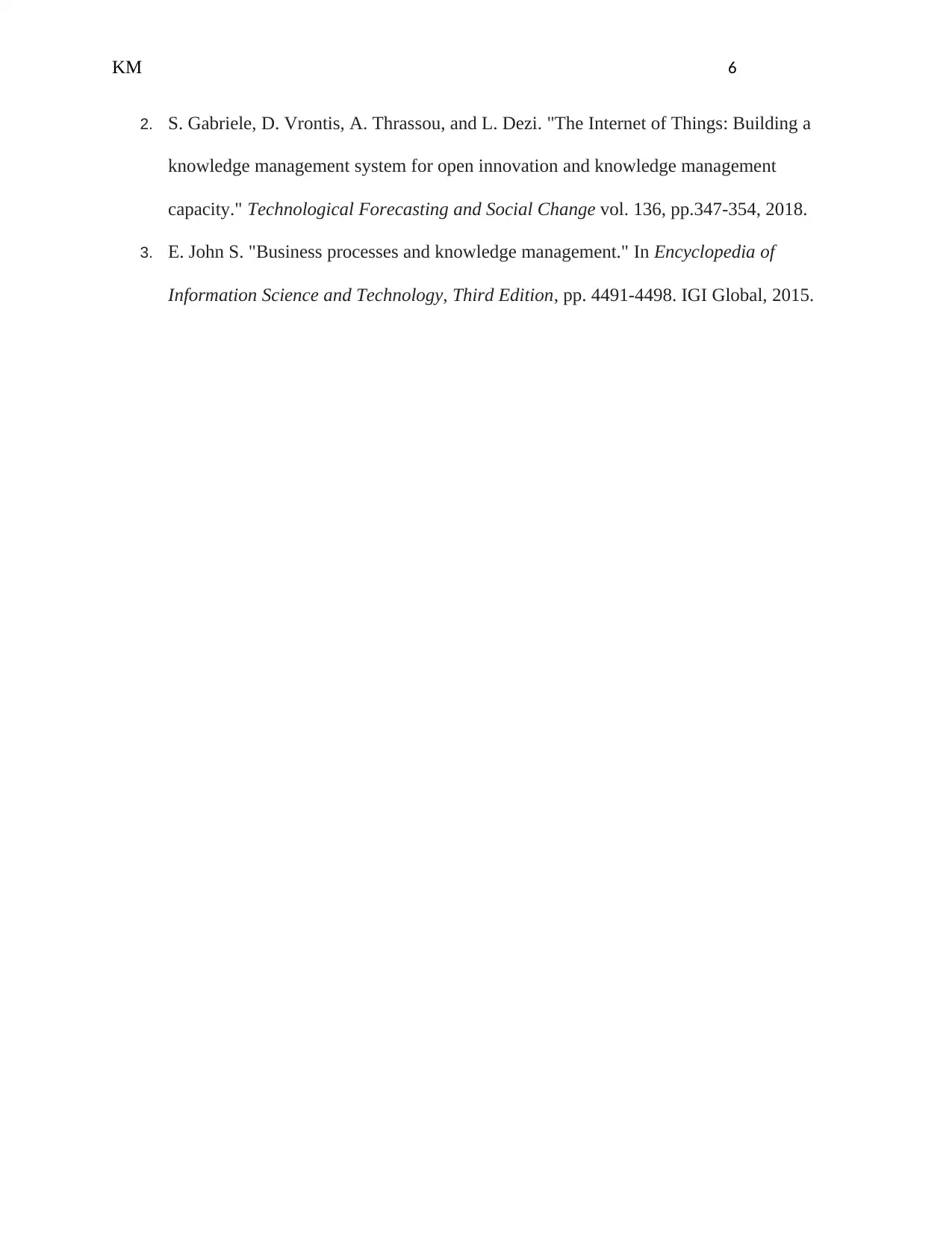





![[object Object]](/_next/static/media/star-bottom.7253800d.svg)